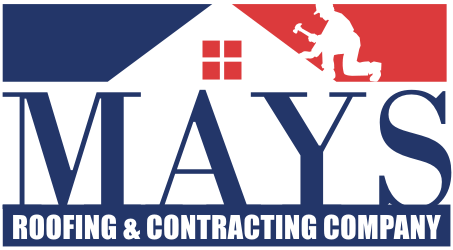How to Increase Your Roof’s Lifespan with Effective Maintenance Techniques
Your roof is one of the most critical components of your home. It provides shelter, protection, and insulates against the elements. However, over time, roofs can suffer wear and tear. To prolong the lifespan of your roof, adopting effective maintenance techniques is essential. This article delves into practical methods and tips for roof care that can help you avoid costly repairs and replacements.
Understanding Roof Lifespan
Before exploring maintenance techniques, it’s vital to understand what influences a roof’s lifespan. Generally, the life expectancy of a roof varies depending on its materials and construction. Asphalt shingles typically last 20 to 30 years, while metal and tile roofs can last 50 years or more. Factors influencing roof longevity include:
- Type of materials used
- Environmental conditions (e.g., sun exposure, humidity)
- Quality of installation
- Regular maintenance
- Presence of overhanging trees
Routine Inspections
Regular inspections are the foundation of effective roof maintenance. Schedule inspections at least twice a year, preferably in spring and fall. Here’s what to look for during inspections:
Signs of Wear and Tear
Inspect for missing or damaged shingles, signs of water damage, and debris accumulation. Look for:
- Cracked, curled, or missing shingles
- Rust or corrosion on metal roofs
- Granule loss in asphalt shingles
- Fungus, mold, or algae growth
Flashing and Seals
Check the flashing around chimneys, vents, and skylights. Compromised seals can lead to significant water damage.
Cleaning and Debris Removal
Keeping your roof clean is crucial for its longevity. Debris such as leaves, branches, and dirt can trap moisture, leading to mold growth and deterioration. Regular cleaning methods include:
Gutter Maintenance
Clogged gutters can cause water to back up under the shingles, leading to leaks. Clean your gutters at least twice a year, or more if you have numerous trees nearby. Ensure downspouts direct water away from the foundation.
Debris Clearance
Remove debris from the roof surface using a broom or a leaf blower. Avoid using a pressure washer, as it may dislodge shingles or damage seals.
Proper Ventilation
Roof ventilation is critical for extending a roof’s lifespan. Proper airflow helps in regulating temperatures and reducing humidity levels in the attic. Signs of inadequate ventilation include:
- Excessive heat build-up in the attic
- Ice dams forming during winter
- Moisture accumulation and mold growth
Types of Ventilation Systems
Consider installing the following types of ventilation systems:
- Ridge vents
- Soffit vents
- Gable vents
Consult a professional to assess your ventilation needs and make necessary improvements.
Addressing Minor Repairs Promptly
Timely intervention in small issues can prevent larger problems down the line. Conduct minor repairs as soon as signs of damage arise:
Replacing Damaged Shingles
If you notice any cracked or missing shingles, replace them immediately to maintain structural integrity.
Sealing Leaks
Inspect and seal any leaks with roofing cement or silicone sealant. Be sure to choose a product compatible with your roofing materials.
Professional Maintenance Services
While some maintenance tasks can be handled independently, others require professional expertise. Hiring a licensed roofing contractor offers several advantages:
- Expert inspections and advice
- Access to specialized equipment
- Comprehensive warranty options
Frequency of Professional Inspections
Consider scheduling a comprehensive inspection by a professional at least every three years. This allows for early detection of potential problems and recommended upgrades.
Investing in Quality Materials
Choosing high-quality roofing materials will significantly impact your roof’s lifespan. When installing or replacing your roof, consider the following materials:
- Architectural asphalt shingles
- Metal roofing
- Tile roofing
- Slate roofing
Investing in a higher-quality product often results in lower long-term maintenance costs and fewer replacements.
Protecting Against Weather Elements
Severe weather can pose significant risks to your roof. Here are some protective measures to consider:
Storm Preparation
Before a storm, clear your yard of debris and trim overhanging branches. Secure any loose items that could become projectiles in high winds.
Post-Storm Inspections
Following major weather events, conduct a thorough inspection. Address any visible damage promptly to prevent leaks and further deterioration.
Consider Roof Coatings
Roof coatings can enhance the roof’s durability by providing a protective layer against UV rays and moisture. These coatings can extend the life of your roof by:
- Reducing thermal shock
- Preventing leaks
- Lowering energy costs
Consult a professional to determine if your roof is suitable for a coating and to identify the best type of product to use.
Regular Maintenance Schedule
Establishing a consistent maintenance schedule can keep your roof in prime condition. Document what tasks need to be performed and when. Consider the following:
Seasonal Tasks
Implement a seasonal inspection and cleaning schedule. Include gutter cleaning, debris removal, and checks for leaks.
Long-term Planning
Plan for major repairs or replacements as your roof approaches the end of its expected lifespan. Keeping a timeline helps in budgeting and reduces stress.
Conclusion
Maintaining your roof is not just about immediate aesthetics; it plays a vital role in preserving your home’s value and safety. By adopting these effective maintenance techniques, you can significantly increase your roof’s lifespan. Regular inspections, cleaning, prompt repairs, and investing in quality materials will help you achieve this goal. Remember, a well-maintained roof offers peace of mind and ensures long-term protection against environmental elements.





 Mays Contracting
Mays Contracting

